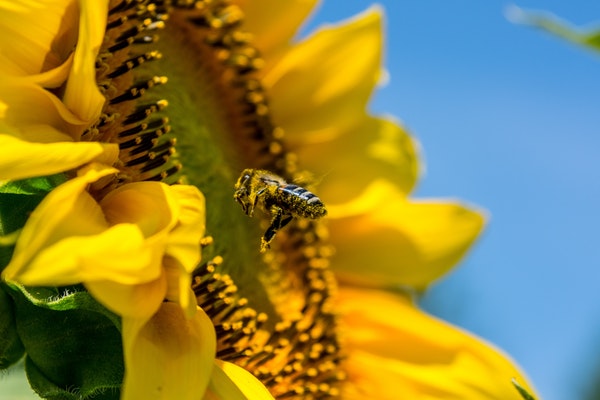Pesticides With a Side Of Honey Many of the world’s farmers use chemicals to protect their crops from pests. Unfortunately, this also means bees come in contact with the chemicals as well. Though the impact of pesticides on bee has been researched for a while, new research on the impact these pesticides has on honey has just begun to surface. The research shows that trace amounts of chemicals are apparent, leaving the question, how will consuming these chemicals affect up? While the answer has not been found yet, we recommend looking for a honey source that guarantees that the land where the bees forage is pesticide free, wildflowers and organic! Buzzworthy Plan A home in Hillside, N.J was finding that a wall in their house was very noisy. They didn’t expect to find over 30,000 bees, and 40 pounds of honeycomb in their walls. The bees were Africanized, making them incredibly aggressive. Unable to keep them due to their aggressive nature, the beekeeper who removed the hive ended up releasing them to a secluded area in the wild. Aloha Bees News in Hawaii says that bees may be the new urban roommate! Oahu beekeepers are stating that many bees are beginning to migrate to urban neighbors to find water and some shade. Many families have begun to see signs of bees, while others have already had them move in! Dull Buzz For a Montana Beekeeper, the honey isn’t flowing like it use to. This year, the Wustner Brothers Honey company has seen a yield that is down 50 percent from last year. To blame? Climate. The extreme drought and wildfires in the area have been devastating to local beekeepers in the Missoula area, wreaking havoc on hives and business. Montana is the 3rd largest producer of honey, and while they have been spared by many problems, like parasites and colony collapse disorder, the drought is a fight that these keepers are losing. With winter around the corner, fingers crossed that the Montana hives can survive.
Continue reading

Always Bee Learning: Introduction of our beesties
Today, there are around 20,000 bee species known worldwide. Of those species, 4000 of them have been found in the US, and over 250 have been found in the U.K. As if 20,000 was not a lot, it is said...

Thankful For Our Bees
This Thanksgiving, bee sure to give a lil thanks to our beesties the bees! Many don’t know, but a large amount of the food we eat is either directly, or indirectly thanks to our buzz-worthy friends...



